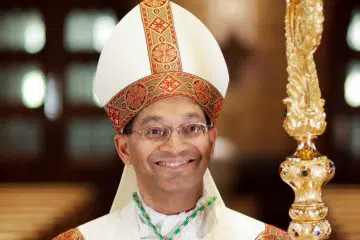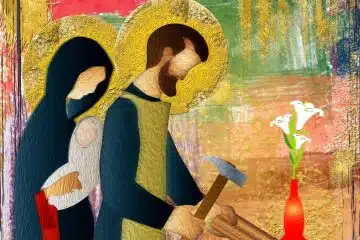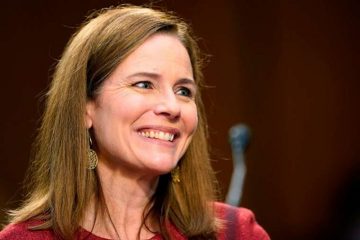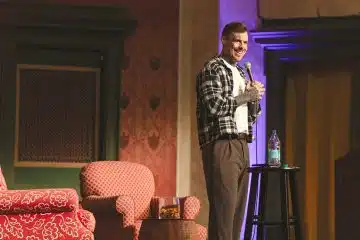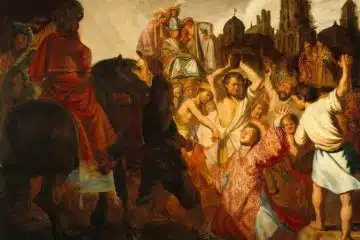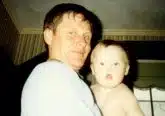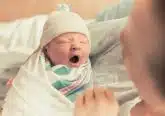Being Pro Life: The Need to Belong

Cindi gave birth to a boy with Down’s Syndrome. She decided early on she would never fight with the Church about her son being included in his faith community. As it turned out, there were 5 Catholic churches in her community. When he was old enough to start religious formation, she went to each one. Of the five, four of them said they could not include him in their regular faith formation classes. Fortunately, one did, so he was able to prepare for this First Communion with his friends.
Based on the people I spoke with on the topic of inclusion, moving toward a separate program to educate people with varying disabilities seems to be the norm, while the norm for what these families believe they need, is to be a part of the same programs whenever possible. The USCCB 1995 statement, Welcome and Justice for Persons with Disabilities says, “Parish liturgical celebrations and catechetical programs should be accessible to persons with disabilities and open to their full, active and conscious participation, according to their capacity.”
Fr. Matt Schneider, LC, is a priest, currently serving in Washington, DC, who also happens to have autism. People who fall on the autism spectrum may demonstrate a varying array of conditions often characterized by challenges with social skills, repetitive behaviors, speech and nonverbal communication. Some, like Fr. Matthew, are high functioning and can adapt well with their sensory and social issues. Others are more severely affected, and it can be a challenge to include children who fall on the autism spectrum in religious education, or even at Mass. My office covered autism as a separate topic in May of 2019, and since then we have been working to encourage parishes to have sensory friendly Masses to better welcome those with autism and other sensory issues. Fr. Matthew is a big fan of that approach, and you can find more information on the autism section of our Being Pro Life page. Fr. Matthew also covers the topic on his YouTube channel you can find on our website.
Taylor is a young adult who considers herself a teenage convert. Due to being born prematurely, Taylor also suffers from cerebral palsy which affects her muscle movement. While baptized and sent to Catholic school, she did not practice her faith at home in any way. She was captivated when the story of Terri Schiavo hit the news in 2005, the young woman with severe brain damage whose husband was fighting a legal battle to have her feeding tube removed, while her family insisted on her right to live. Because Taylor has physical disabilities herself, she “was horrified to learn that the feeding tube was removed from a person who was clearly not brain dead.” She added, “I knew I needed Jesus if I was going to fight this kind of evil”. She has been a faithful Catholic fighting for the rights of those with disabilities ever since. While at times physical accessibility issues can be costly to address, she claims the biggest issue she faces is the presumption of helplessness. People with disabilities are presumed to have no gifts to offer. “Presume competence” she pleads. “Presume they have something to offer, and they don’t only need to be accommodated.”
Cindi, who I mentioned at the beginning of this article, also lost her sight when her son turned 7 years old. She was a very active member of her parish, but quickly discovered that she was able to continue to do most of what she always did through the assistance of technology. The primary issues she faced, however, were transportation and basic acceptance. Getting to where she needed to go became a serious challenge, and people never offered to help. Also, she suddenly found herself moved from a space of being valued as a contributing member of a parish, to being treated as someone who only needs help.
According to those I interviewed, the key word here is belonging. People who have disabilities want to be known for who they are, not their disability. Anne Masters, Director of Pastoral Ministry for Persons with Disabilities for the Archdiocese of Newark, put it this way: “No one refers to me as ‘the arthritic woman’, but people with disabilities spend their entire lives being identified for their disability.” When at all possible, we need to work to include them in liturgy and our catechetical programs. Check out links to resource pages found on this month’s topic at www.catholiccincinnati.org/being-pro-life.
PODCAST SCHEDULE
April 21:
Dr. Ken Crayfraft, Mount St. Mary’s Seminary & School of Theology
April 28:
Anne Masters, Archdiocese of Newark, NJ
May 5:
Cindi Swanson, National Catholic Partnership on Disability
May 12:
Fr. Matthew Schneider, LC. A Priest with Autism
May 19:
Taylor Hyatt, Disabilities Rights Activist, Canada


